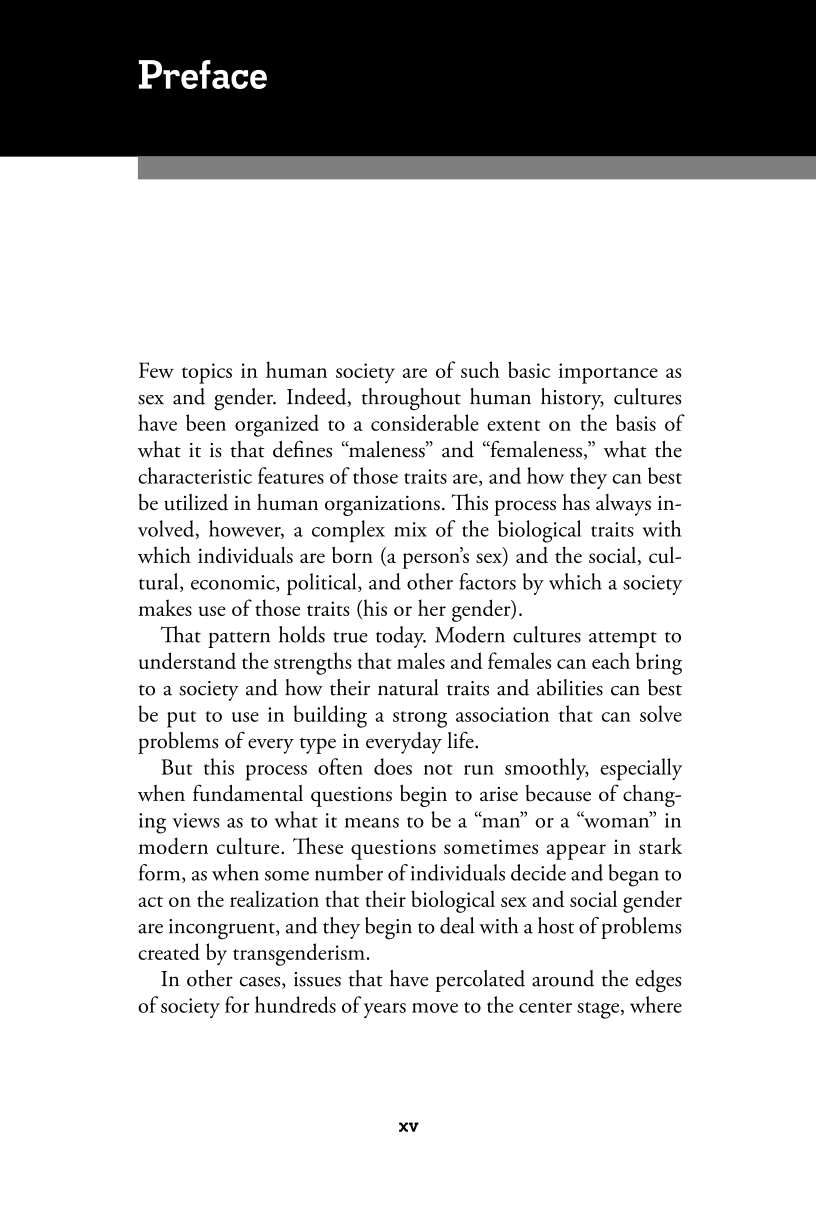xv
Preface
Few topics in human society are of such basic importance as
sex and gender. Indeed, throughout human history, cultures
have been organized to a considerable extent on the basis of
what it is that defi nes “maleness” and “femaleness,” what the
characteristic features of those traits are, and how they can best
be utilized in human organizations. Th is process has always in-
volved, however, a complex mix of the biological traits with
which individuals are born (a person’s sex) and the social, cul-
tural, economic, political, and other factors by which a society
makes use of those traits (his or her gender).
Th at pattern holds true today. Modern cultures attempt to
understand the strengths that males and females can each bring
to a society and how their natural traits and abilities can best
be put to use in building a strong association that can solve
problems of every type in everyday life.
But this process often does not run smoothly, especially
when fundamental questions begin to arise because of chang-
ing views as to what it means to be a “man” or a “woman” in
modern culture. Th ese questions sometimes appear in stark
form, as when some number of individuals decide and began to
act on the realization that their biological sex and social gender
are incongruent, and they begin to deal with a host of problems
created by transgenderism.
In other cases, issues that have percolated around the edges
of society for hundreds of years move to the center stage, where





























































































































































































































































































































































































